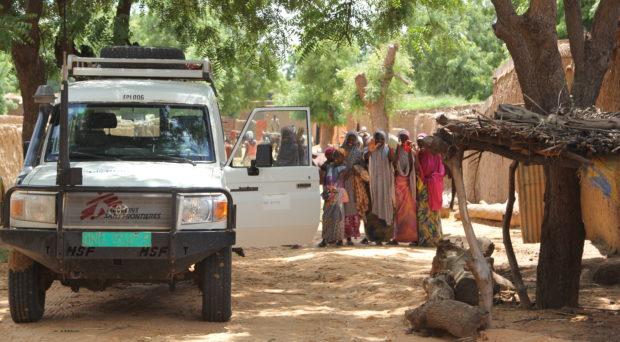
On Friday and Saturday this week, the 14th MSF Scientific Days programme will kick off in London at the Royal Society of Medicine. These events are followed by a day in New Delhi, India on May 27th and in Blantyre, Malawi on June 22nd. There are also screenings in MSF field projects, and linked events hosted by academic institutions in Australia and Argentina. The events are also broadcast online in English and French, and last year were watched by over 11,000 people from 125 countries. We are particularly happy that viewers from many of the countries where MSF works were able to join us.
So what are the MSF Scientific Days about? The aim of these events is to share the knowledge of what works in humanitarian medical programming with as wide and relevant an audience as possible. At the Scientific Days, MSF challenges itself and our partners to reflect on the evidence for the effectiveness of our activities in order to improve the care we deliver to our patients.
 In London, we have one day dedicated to medical research, and one focusing on innovation – the variety of methods, topics, and settings represents the diversity of MSF’s programmes. On day one, the research day includes presentations on MSF’s response to major conflicts in countries such as Yemen and Nigeria and a round table discussion on what we know about getting the best evidence from emergency settings. Our keynote speaker, Dr Jemilah Mahmood, will discuss the challenges involved in community engagement, which will be followed by a session on thinking about ways to improve the access to and quality of our medical programmes. A wide-ranging HIV and tuberculosis session covers new treatments, regimens, testing, and care. The day closes with a session on different approaches to disease prevention and elimination.
In London, we have one day dedicated to medical research, and one focusing on innovation – the variety of methods, topics, and settings represents the diversity of MSF’s programmes. On day one, the research day includes presentations on MSF’s response to major conflicts in countries such as Yemen and Nigeria and a round table discussion on what we know about getting the best evidence from emergency settings. Our keynote speaker, Dr Jemilah Mahmood, will discuss the challenges involved in community engagement, which will be followed by a session on thinking about ways to improve the access to and quality of our medical programmes. A wide-ranging HIV and tuberculosis session covers new treatments, regimens, testing, and care. The day closes with a session on different approaches to disease prevention and elimination.
The aim of these events is to share the knowledge of what works in humanitarian medical programming with as wide and relevant an audience as possible.
Day two involves wider thinking around innovation, starting off by examining different approaches to managing processes and partnerships in our projects from the large (a multiplex fever diagnostic) to the smaller scale (designing an IV fluid bag holder). The keynote speaker, Professor Peter Redfield, will be taking the long view of how MSF engages with innovation and how innovation intersects with humanitarian principles. Two topic focussed sessions will explore how we use mapping and surveillance data, and the experience of planning and deploying technological solutions to supporting clinical care in field projects. The innovation day became part of the MSF Scientific Days 3 years ago, and the final session of the day includes a discussion on what we have learnt from these 3 years of presentations and discussions. The day closes with presentations on new approaches to tackling care delivery in complex settings or for neglected populations.
We have over 30 posters submitted to the conference, and these can be viewed on our F1000 MSF Scientific Days pages, where slides and videos of the event will also be made available. We invite you to vote for the one you think is the most interesting, insightful, relevant, and high quality.
If you are not able to attend the events in person, we hope you can join our growing online audience, who are an integral part of the days. Please join us online, where you can ask questions in real time to the speakers using the #MSFsci hashtag – and help us make this a true conference without borders.
Comments